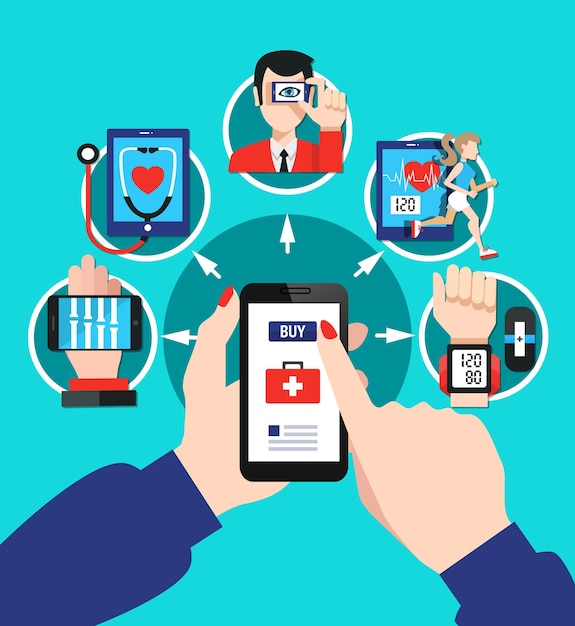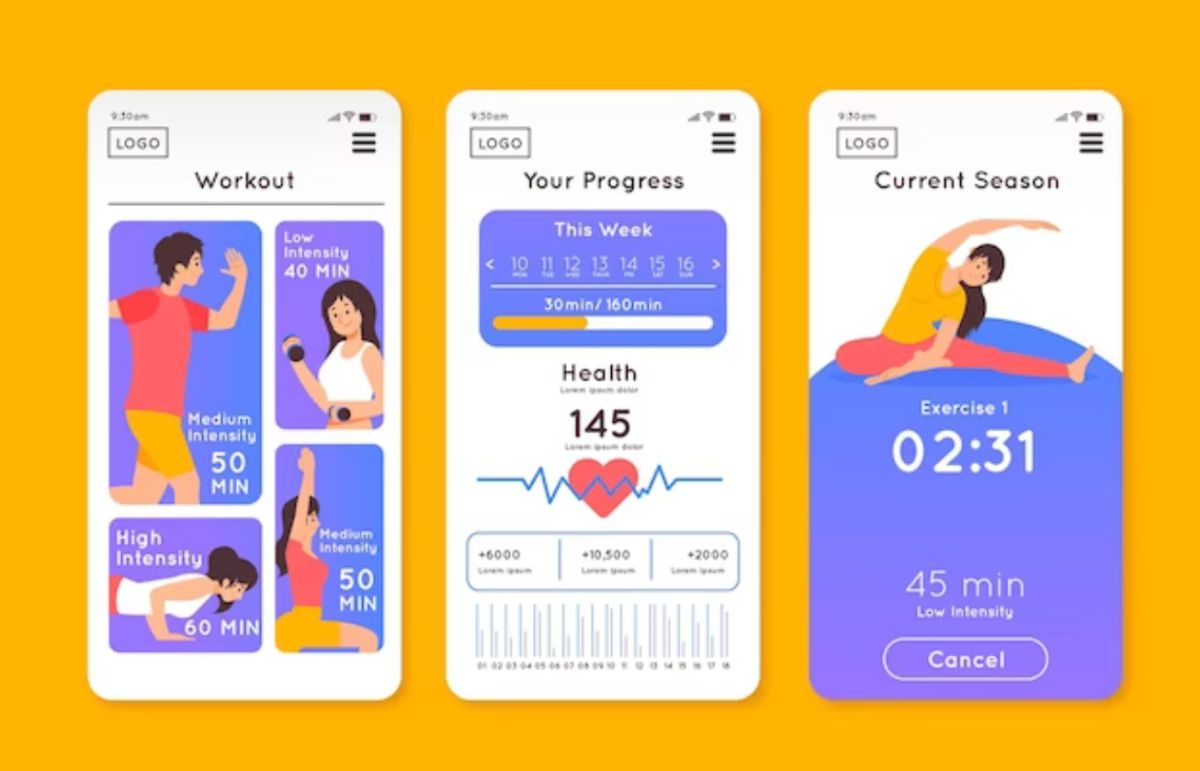 07 May, 2021
07 May, 2021
Sức khoẻ di động
Thuật ngữ “sức khoẻ di động” nói tới việc dùng các công nghệ di động để hỗ trợ cho các chức năng y tế, phòng khám, và vận hành trong công nghiệp chăm sóc sức khoẻ cũng như cải tiến các ứng dụng sức khoẻ.
Ngày nay sức khoẻ di động là khu vực tăng trưởng nhanh nhất với giá trị trên tỉ đô la cho bệnh viện, bảo hiểm sức khoẻ, và phòng khám. Trong vài năm qua, những người phát triển app di động đã tạo ra nhiều sản phẩm cho phép các bác sĩ y tế truy nhập vào sổ sức khoẻ bệnh nhân; giám sát sản phẩm mà bệnh nhân có thể dùng để thu thập thông tin sức khoẻ như huyết áp, nhịp tim, và dữ liệu đa dạng về điều kiện sức khoẻ; các app đặc biệt cho bác sĩ y tế để xem các ảnh tia x và các ảnh y tế khác qua thiết bị di động; và các ứng dụng cho dược sĩ để nhắc nhở bệnh nhân uống thuốc v.v.
App di động hỗ trợ cho sức khoẻ cá nhân là rất phổ biến với các app như chương trình ăn kiêng, chương trình giảm cân, đo đường máu và hướng dẫn các bệnh nhân đái đường. Những app này dễ dàng phát triển vì chúng có thể được bán trực tiếp cho người tiêu thụ qua các cửa hàng app hay tải xuống dễ dàng từ các websites vào điện thoại thông minh. Ngày nay có trên 10,000 app y tế, sức khoẻ cho thị trường điện thoại thông minh và máy tính bảng nhưng thị trường vẫn tăng trưởng mạnh trong thị trường địa phương dùng ngôn ngữ địa phương.
![]()
Theo một khảo cứu công nghiệp, một số app sức khoẻ di động đang ngày một phức tạp và tiến hoá thành các ứng dụng giá trị cao nơi chúng có thể thu thập dữ liệu sức khoẻ cá nhân và chia sẻ điều đó với các bác sĩ, y tá, cố vấn sức khoẻ, công ti bảo hiểm, và bệnh viện v.v. Một số app sẽ tạo khả năng cho các bác sĩ giám sát điều kiện sức khoẻ của bệnh nhân trên cơ sở đều đặn. Những app giám sát sức khoẻ từ xa này có thể gửi dữ liệu một cách tự động tới bác sĩ nhưng thường tính tiền bệnh nhân theo phí dịch vụ hàng tháng. Với những người có bệnh nào đó, các điều kiện sức khoẻ của họ được các bác sĩ giám sát thường xuyên là tốt hơn phải đi tới gặp bác sĩ và phần lớn đều sẵn lòng trả phí hàng tháng. Có nhiều ứng dụng sức khoẻ di động dùng điện thoại chỉ như modem để truyền dữ liệu được thu thập từ các cảm biến y tế mang được và mặc được để truyền dữ liệu về bệnh viện.
Dự báo cho sức khoẻ di động là cực kì tốt như cái có thể tăng trưởng cho vài tỉ người trong năm năm tới khi số người dùng điện thoại thông minh tăng lên trong mọi nước. Rõ ràng rằng sức khoẻ di động là thị trường sinh lời cho người phát triển di động.

—English version—
Mobile health
The term “mobile health” refers to the use of mobile technologies to support medical, clinical, and operational functions in the healthcare industry as well as improving health fitness applications.
Today mobile health is the fastest growing sector with value over a billion dollars for hospital, health-insurance, and clinics. In the past few years, mobile apps developers have created many products that allow medical doctors to access patient health records; monitoring products that patients can use to collect health information such as blood pressure, heart rate, and various data on health conditions; Special apps for medical doctors to view x-rays and other medical images via mobile devices; and applications for pharmacist to remind patients to take their medicine etc.
Mobile apps supporting personal health are very popular with apps such as diet programs, weight-loss programs, blood-sugar measurement and guides for diabetics patients. These apps are easy to develop as they can be sold directly to consumers via apps stores or download easily from websites to smartphones. Today there are over 10,000 mobile medical, fitness apps for the smartphone and tablets market but the market is still growing strong in local market using local languages.
According to an industry study, some mobile health apps are getting more sophisticated and evolving to high-value applications where they can collect a person health data and share that with doctors, nurses, health counselors, insurance companies, and hospitals etc. Some would enable doctors to monitor patient’s health conditions on a periodic basis. These mobile health remote monitoring apps can send data automatically to doctors but often charge patients a monthly service fee. For people with certain diseases, it would be better to have their health conditions constantly monitored by doctors rather than have to go to see a doctor and most are willing to pay for a monthly fee. There are several mobile health applications that use the phone only as a modem to transmit data gathered from a wearable or portable medical sensor instrument to transmit data to hospitals.
The forecast for mobile health is excellent as which could grow to several billion in the next five years as the number of smartphone users increases in every country. It is clear that mobile health is a lucrative market for mobile developers.




 Thông báo
Thông báo














 Quay lại đăng nhập
Quay lại đăng nhập
